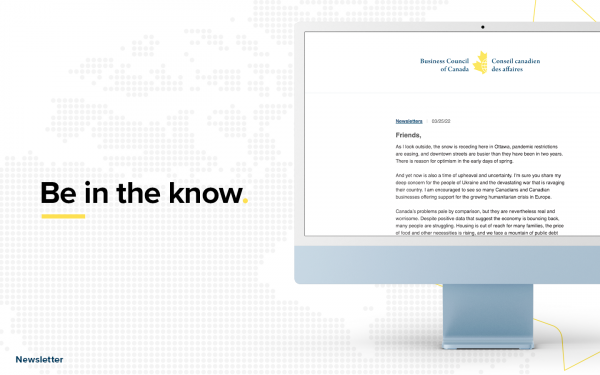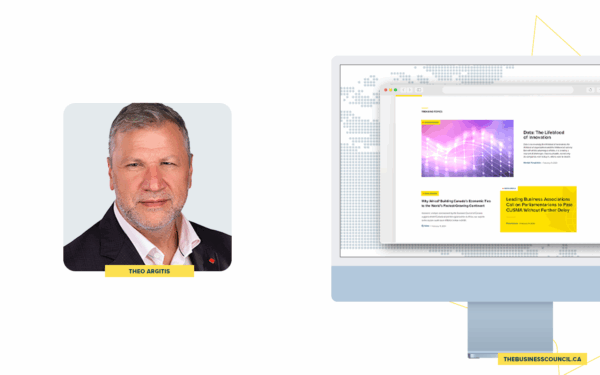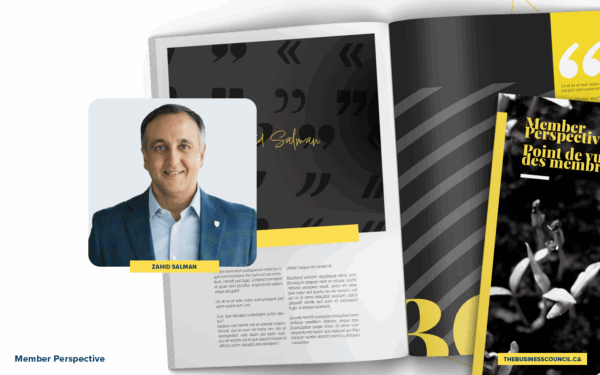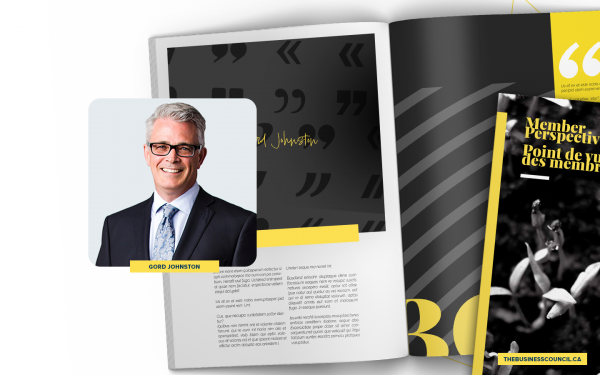Fast forward
As published in the Globe and Mail’s December 2020 edition of Report on Business magazine
We will look at this as a pivotal moment in business and society.
I became president and general manager of IBM Canada in April, in the middle of the pandemic. At the beginning, many of our clients were unprepared for the shift to working from home, so it was about getting them the broadband, wireless networks and cloud computing they needed for support. But then, despite the fact that it has been an unprecedented tragedy, the pandemic became a powerful force for disruption. We’d been talking to a lot of executives about digital transformation for the past two or three years; now it’s actually happening. We will look at this as a pivotal moment in business and society, when that transformation suddenly accelerated. It’s a pretty intense moment.
There are a few things our clients are doing, and one of them is applying artificial intelligence or automation to their operations. As the pandemic hit, for instance, the City of Markham, Ont., started getting thousands of phone calls related to the rules around COVID-19. We used AI technology to allow them to handle the vast majority of those questions in an automated fashion — and we got that technology up and running in a matter of days. If you had asked any executive before this how long it would take to implement that system, you would have been told weeks or months as opposed to days. When there’s a driving force, you can make things happen so much faster because the technologies — like AI— are proven now. AI can make a whole internal process or workflow faster, stronger and less expensive. And we can apply AI on AI to detect if there is a bias built into, say, a mortgage application system that could result in systemic racism. We should be able to eliminate it.
From a technology perspective, this digital acceleration is nice. But as you accelerate, you need to develop new skills. In the immediate term, those skills are in cloud, AI and cybersecurity technologies. The future one is quantum technology, which is going to allow the world to resolve problems that have never been humanly possible to resolve — quantum technology is already being used by the pharmaceutical industry to figure out the coronavirus genome, find a cure and find a vaccine. It’s still in its infancy, but we’re going to see that taking on a big role in the next three to five years.
The thing that worries me — and many of the executives I talk to say the same thing — is employees’ physical and emotional health related to both the pandemic and this technological acceleration. Eighty percent of the executives we’ve surveyed say they’re supporting the physical and emotional health of their workforce, yet only 46% of employees surveyed feel supported. That’s a cry for help to executives that we need to do more for workers’ skills, as well as doing more for their mental and physical well-being.










